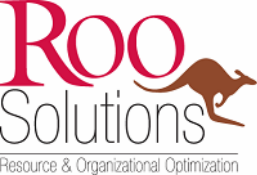|
An HBR article this morning talked about the price of overly prescriptive HR policies. It reminded me of blog I wrote a couple of years ago - enjoy.
Originally published May, 2014 The Rules I just finished reading Rework by the founders of 37signals. The real voice and practical advice was refreshing. The swear words were attention grabbing and real. I didn't agree with everything they wrote but I clearly understood their positions If only "Employee Handbooks" could be so simple. Handbooks are not suggestions; they are the "rules of the road". People need to follow them, managers need to enforce them and HR needs to get rid of the ones that don't make sense. The contents should be clear, concise and worth writing down. If I were to write a handbook for real people with real expectations, it might go something like this: EEO Policy: We try to hire and promote the best people for what we need today and think we will need tomorrow. We hope you are one of these people. If you know where to find more of them please tell us. They don't have to think like us, look like us, or talk like us. They do need to believe in "us". Harassment policy: Don't treat people badly, meaning worse, because of something they cannot or should not change about themselves. Don't make threats or promises for favors. Attack issues, not people. Don't be "that guy or gal" nobody else wants to work with or you won't be working here. Social media policy: Be smart, not a smart aleck. Whatever you post on social media is public forever. It affects you it affects "us" and maybe others. Have the facts and have permission to publish them. Keep confidential information confidential. Problem resolution: if you are worried, concerned or confused about something at work, do something about it. Speak up. We don't know what you are thinking. If we don't know about a problem we can't fix it. Somehow I don't think the attorneys will let this version fly, but I like it. Would this phrase instill fear or excitement in the typical intern at your company?
Will her hopes and dreams be slashed and cut to pieces like in the horror movie because she was relegated to ordering cupcakes and taking notes at department meetings? Or, might she leave her internship experience with confidence, new skills and a realistic understanding of her growth needs, because her supervisor cared enough to establish goals, meet regularly regarding progress and provide a final evaluation? Too often, internships end up with the intern endlessly following others to meetings, doing data entry and generally wondering what the heck they should be working on. Not a lot of actual learning takes place. A well designed internship program, can be a tremendous learning opportunity for the intern and create a solid reputation for your organization with educational institutions, but it takes intention, commitment and nurturing on the part of your organization and individual mentors. Legal Consideration When considering starting an internship program, think about a few of the legal requirements: In today's physical and virtual workplaces it seems we have unending opportunities to connect, create and consume. How can we be more intentional in our requests of others? How do we decide how much energy, time and interest to commit to what opportunities, and to what end? Below is a suggested framework for evaluating how and when to work on with experts inside or outside of your organization.
Collaborate. This is a true partnership that requires equal parts passion and commitment and shared decision-making. Fasten your seatbelts everyone – 2017 is going to be a rollercoaster ride for employment issues. Roo is here to help.
Below are links to updated HR documents to start using in 2017:
Roo is excited to finally present some great news regarding employment law. On December 13, 2016 President Obama signed into law the 21st Century Cures Act. This law provides small employers (50 or less employees) with the option to fund or reimburse an employee’s individual health care plan with pre-tax dollars. This is significant for small employers who do not currently offer a medical plan.
Key components of the law At work, in life, and most definitely in HR, many tough talks take place. As individuals, as managers, and as leaders we often postpone these discussions. We put it off until things are so unmanageable that we personalize it, get frustrated and angry. When we finally do have “the talk” – this job is not working out – words often come out sideways, filled with blame and accusation.
Rather than informing an employee that he is terminated, consider having a caring and candid conversation. Planning “The Talk” Before the conversation, make sure you can honestly say you have provided:
Having “The Talk” In all likelihood, the under-performing employee knows the job isn’t the right fit. Open with a question, such as,
Then just listen. The employee will probably bring up many areas of under-performance before you need to point them out. Take the opportunity to remind the employee of tools, training and the coaching already provided. Kindly put forward your belief that additional training is not likely to improve performance to the level needed for the role. At this point, share with the employee two possible scenarios.
Set the expectation that you will schedule a meeting in 2-3 days to discuss further. Close the meeting by offering the employee the option to stay in the room for a while to process, or the option to go home for the day if he doesn’t feel able to return to work. After “The Talk” Schedule a follow up meeting 2-3 days after “The Talk”. If scenario 1 is chosen, work out the details of the transition plan and expectations of both the employee and employer during the transition period. If scenario 2 is chosen, present a Performance Improvement Plan with specific expectations, timeliness and measures of success. This is still a very tough talk and there may be tears, yet it respects and honors the person behind the performance. While this approach doesn’t work with every employee, but most professionals will appreciate your honesty and the opportunity to have a voice in their (probable) transition out of the organization.  I am one lucky gal, for many reasons. One thing I am particularly grateful for this month is my Mastermind group – a group of fantastic women committed to growing and scaling our businesses. During our most recent meeting we got to talking about difficult clients, and the occasional need to “demarket” a client. Let’s get real people, demarket is just fancy talk for firing a client. Sometimes it needs to be done. A few of us talked about avoiding the discussion for a while, but also acknowledged how much more effective we were and how much better we could serve our remaining clients when we weren’t distracted by the single client that ate up much of our time in unproductive ways. Every one of us confirmed that we made the right decision in firing certain clients that didn’t fit our business model. As soon as we put on our “big girl pants” and had the tough conversations, we were more effective in serving our existing clients. The same thing happens in businesses, government and nonprofit arenas. A small subset of employees will push boundaries too far, repeatedly behave badly, and in general make our professional life a nightmare. These folks keep you awake at night. We complain about it, but we often delay addressing the behavior. Problem: When you accept bad behavior it becomes the new “normal” in your culture over time. As a manager, it is your job to help both individuals and your business be successful. This requires:
For your good employees and your business to thrive, you need to put on your big girl / big boy pants. Roo can help. I am one lucky gal, for many reasons. One thing I am particularly grateful for this month is my Mastermind group – a group of fantastic women committed to growing and scaling our businesses. During our most recent meeting we got to talking about difficult clients, and the occasional need to “demarket” a client. Let’s get real people, demarket is just fancy talk for firing a client. Sometimes it needs to be done. A few of us talked about avoiding the discussion for a while, but also acknowledged how much more effective we were and how much better we could serve our remaining clients when we weren’t distracted by the single client that ate up much of our time in unproductive ways. Every one of us confirmed that we made the right decision in firing certain clients that didn’t fit our business model. As soon as we put on our “big girl pants” and had the tough conversations, we were more effective in serving our existing clients. I
In today’s tight job market it is more critical than ever to effectively recruit, engage and retain your talent. Job security does not exist - today’s candidates are looking for career security. This means employers have to keep employee skills relevant and provide ongoing opportunities for growth.
We need to “woo” potential employees as well as existing staff. If you’ve never read the art of woo by Richard Shell and Mario Moussa, it is a good read. People are the only differentiator. When you post (a/k/a market) a job (a/k/a product) to a potential new hire, what is your sizzle? What is worth promoting? Compare your marketing messages for products to marketing messages for current and potential employees. |
From Roo to you!


